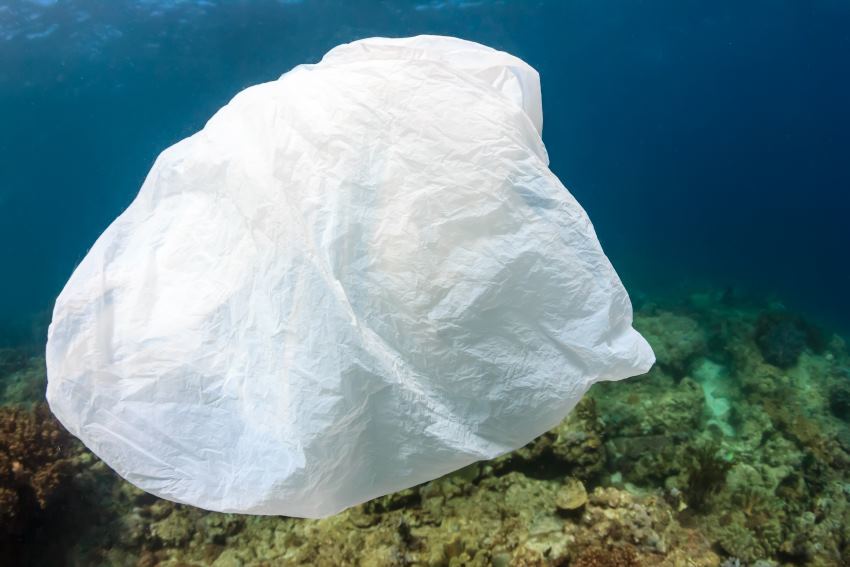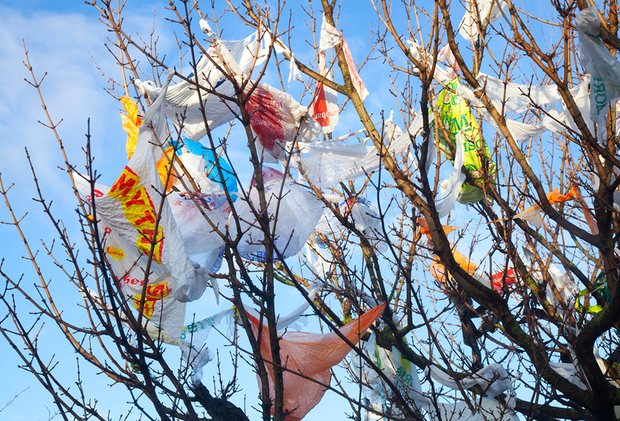The use of plastic bags in the UK fell by 85%
The reason - the introduction of a tax of 5 pence on packages in supermarkets

During the first half of the year, the British used only 500 million plastic bags. It seems to be a lot, but for the same period last year, 7 billion packages were used. In this case, it is unlikely that residents of the UK have become much more conscious in terms of environmental protection. A more effective tool than the dissemination of information about the dangers of plastic for natural ecosystems turned out to be a package tax. In October last year, the government introduced a tax on the use of packages in the amount of 5 pence.
This is the minimum tax, shops can ask for a package and a large amount. Introducing this tax, the government stated that its size is too small to collect significant amounts in the budget. In addition, 5 pence per package is a fee that should not adversely affect the business of large and small stores. According to officials, the tax should have affected the number of packages used by buyers. Officials were right - almost immediately after the introduction of taxes, buyers in stores began to refuse packages. In the first half of this year, the British used 85% less packages than last year.
Data on the number of packages used is provided by government representatives who first assessed the impact of the tax taken last year. Officials believe that this year they will use about 6 billion packages less than in 2015. The tax was not introduced all over the UK right away. First, the scheme was tested in Scotland, then - in Wales, and then - in Northern Ireland. When officials noticed a positive effect, the tax became statewide.
')

Plastic, plastic everywhere (Photo: Martin Godwin, Guardian)
Not all stores are subject to the new tax law, but only those with 250 full-time employees. In addition, tax is not charged on paper bags. And there are exceptions for certain products, including meat, fish, prescription drugs, seeds, flowers, live fish.
If other countries had introduced a similar tax, it would probably have a positive effect on the state of the environment. Each year, 8 million tons of plastic is released into the oceans and seas. This material has a negative impact on the state of marine ecosystems. The fact is that plastic products are taken for food by many marine animals. Plastic has been found in the body of more than 31 species of marine mammals and 100 species of seabirds. Many of them, having filled the stomach with plastic, are dying of hunger. Some birds feed the same plastic with chicks, which also die from hunger and damage to internal organs. Sea turtles take packages for edible jellyfish and plasticize their stomachs.

Packages not only float, but they can fly (Photo: Mar Photographics / Alamy)
In addition to large animals, the smallest organisms also suffer - for example, zooplankton. Not so long ago, a video appeared on the network , showing how copepods (one type of zooplankton), passes plastic through itself.
Usually most species of zooplankton feed on algae. At the same copepods, sensors are quite well developed, which help to determine the edible “algae” for the species. However, the organisms passed through plastic microparticles, obviously taking them for food. Such particles do not cause any particular harm to the body of the copepod, but in some cases the passage of plastic through the body's body slows down. In the case of plankton, a delay of several days is exhaustion and death from starvation. Plus, algae, which also enter the body of the copepod, begin to digest more slowly, which means that the body receives less nutrients.

All that is left is plastic eaten by a dead turtle.
Zooplankton is the basis of the trophic chain of marine ecosystems. If it becomes less plankton, populations of large marine animals are reduced, ecosystems are destroyed, the equilibrium in which has been reached for hundreds of thousands of years.
UK officials, assessing the effect of the introduction of a tax on packages, believe that the tax will be effective in the long term. And this, in their opinion, means that sea animals will be more secure, seas and oceans will become cleaner, and future generations will not be surrounded by mountains of plastic waste. Of course, not only plastic bags fall into the seas and oceans - there are thousands of varieties of products made from this material. But most of all waste is packages and bottles.
It was decided to introduce the tax after the number of packages used by supermarket buyers increased from 6 billion in 2010 to 7.6 billion in 2015. The average buyer used 140 packages a year. 7.6 billion plastic bags are 61,000 tons of plastic waste.
Now, only in one of the networks operating in the UK, the number of packages that customers take has dropped by 30 million per week. The proceeds from the sale of packages, some supermarket chains give to various projects dedicated to environmental protection.
According to the organization of the Marine Conservation Society, which is engaged in cleaning the beaches of the UK, the amount of plastic waste on the coast has increased by one third in just a year - from 2014 to 2015. The same plastic bottles that are found on the coast, it became 43% more.
According to representatives of this organization, packages are not the main problem. The source of a large number of plastic waste are coffee cups, plastic bottles, an excessive amount of packaging material used by both companies and individuals. Perhaps a new tax can also help reduce the number of all these plastic products?
Source: https://habr.com/ru/post/396405/
All Articles